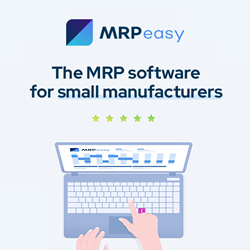SABIC Demonstrates Commitment to Advance Additive Manufacturing at RAPID + TCT
Company underscores its position with the announcement of new filaments, reinforced compounds and differentiated materials for multiple additive manufacturing processes
SABIC, a global leader in thermoplastic technology, is demonstrating here at RAPID + TCT 2017 its focus on advancing additive manufacturing from prototyping to full-scale production, as evidenced by its launch today of six new filaments for fused deposition modeling and a new family of reinforced compounds for large format additive manufacturing. These high-performance materials can help customers capitalize on the huge potential of additive manufacturing as a production process. At its exhibit in booth #2537, the company is also featuring a range of specialized material technologies that can help further the adoption of additive manufacturing.
In his 2016 report, "3D Printing: State of the Industry," additive manufacturing industry consultant, Terry Wohlers stated, "Individuals, companies, and other organizations have had 28 years to learn how to apply 3D printing technology to modeling and prototyping. For the most part, 3D printing is well understood for these applications. The next frontier is to apply 3D printing to the production of parts for final products. This is where the largest opportunities lie and where most investments will be made in the future."1
"The industrys efforts to integrate new materials, processes and designs are critical to evolving additive manufacturing for production," said Lori Louthan, director, Mass Transportation, SABIC. "SABIC is enabling this evolution by creating high-performance materials to help drive this advancement, and is supporting customers with our extensive expertise and resources for testing, design and application development. The filaments, compounds and other materials we are showing here at RAPID + TCT 2017 are just the beginning of our comprehensive effort to help customers in the additive manufacturing industry make the leap from prototyping to full-scale production."
A key aspect of developing new materials is the ability to understand their performance under specific process and end-use application conditions. To this end, SABIC is active in developing test methodologies that will provide insight into the performance of additively manufactured parts. One area of focus involves the fracture mechanics of parts produced by fused deposition modeling. SABICs senior scientist, Devendra Bajaj, PhD, will be sharing his knowledge on this topic at the RAPID + TCT Conference. Dr. Bajajs presentation covers the "Fracture Mechanics of Additively Manufactured Plastic Parts" and takes place on May 9 at 3:15pm as part of the Material Properties I session.
Material Innovations to Expand the Capabilities of Additive Manufacturing
SABIC is working on innovations beyond the new materials launched today for fused deposition modeling and large format additive manufacturing. At its booth, the company is highlighting several disruptive material solutions that can offer improved performance versus currently available products:
• Polycarbonate (PC) materials for selective laser sintering (SLS): SABIC is developing a technology to enable laser sintering of PC materials with good mechanical properties and part densities above 96 percent. These materials may provide an alternative to polyamide 12 (PA 12) and can be processed using commercially available printers.
• EXTEM™ polyimide (PI) filaments for fused deposition modeling: These filaments represent SABICs ongoing focus on developing differentiated, high-temperature solutions for additive manufacturing. The materials are suitable for applications requiring higher temperature performance than ULTEM™ polyetherimide (PEI) filaments.
• High-impact-strength PC filaments for fused deposition modeling: These materials offer improved impact resistance compared to other commercially available PC filaments, and can be processed at standard PC conditions. Potential advantages include reduced part damage in secondary operations, and higher levels of performance in end-use applications.
Application Highlights
To demonstrate the practical application of its new materials for large format additive manufacturing, SABIC is exhibiting a section of a boat hull from Livrea Yacht, which was printed on SABICs Big Area Additive Manufacturing (BAAM®) machine. The outer layer of the hull uses a carbon fiber-reinforced polyphenylene ether (PPE) compound, and the inner lattice support structure is printed from a carbon fiber-reinforced ULTEM™ PEI compound. Using large format additive manufacturing for this application reduces the need for costly molds and prototyping, and yields a lighter, stronger hull in half the time versus traditional fabrication methods.
SABIC is also displaying a selection of parts produced from its new filament materials, which are representative of typical applications across a variety of industries.
From material chemistries, to formulations, to production, to part printing expertise, SABIC integrates design, materials and processing, as the company has done with traditional polymer processes over the past decades, to bring unique offerings to the additive manufacturing space.
SABIC technical experts are available at the companys booth for the duration of RAPID + TCT 2017 to discuss these new technologies and their benefits for additive manufacturing.
Featured Product

